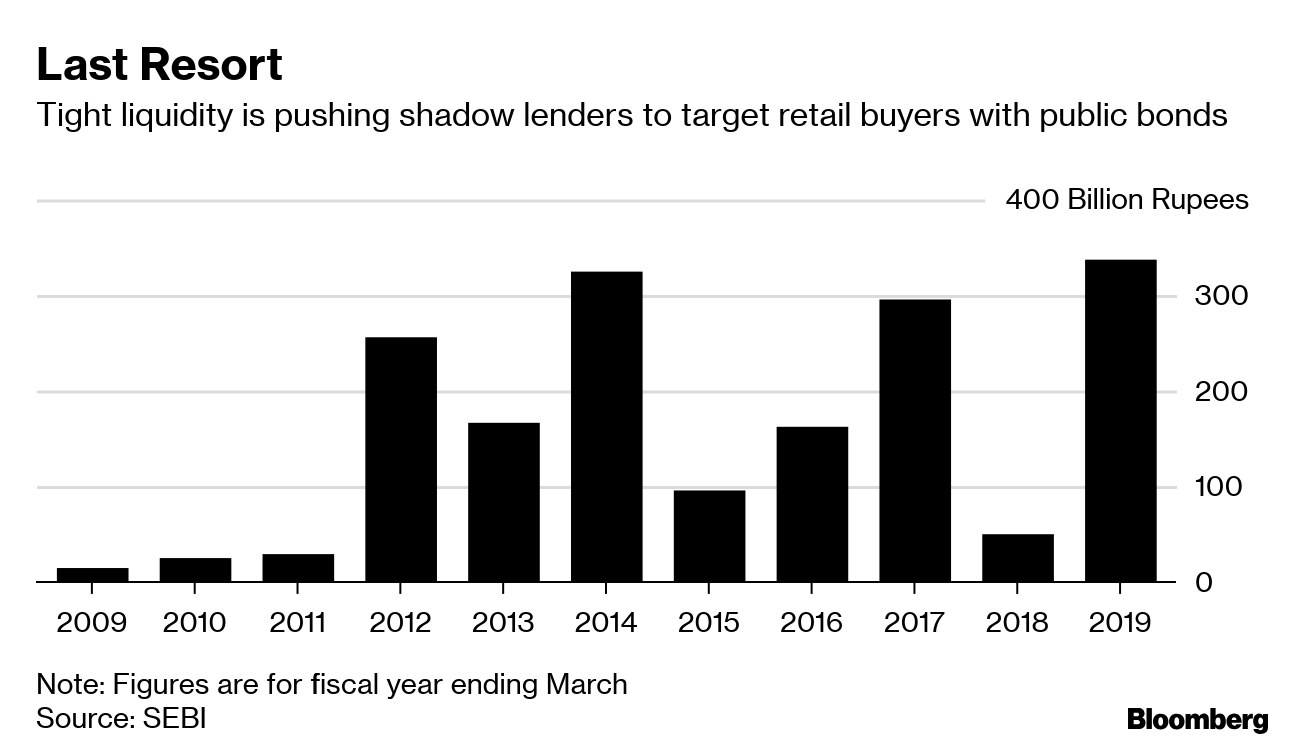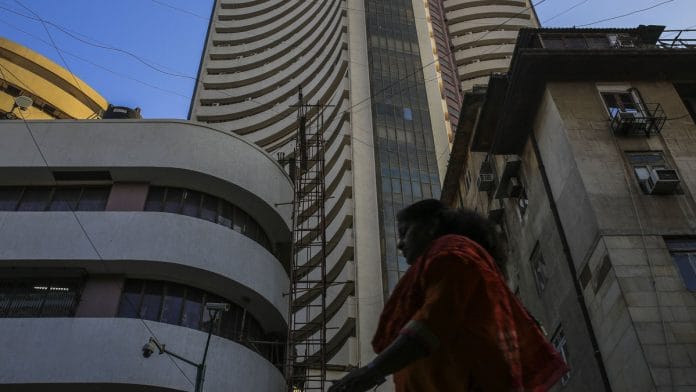Mumbai: Faced with high borrowing costs and a sustained shortage of liquidity in India’s money markets, shadow banks are increasingly pitching bonds with high coupon rates to the public, who may not be aware of the risks they’re taking on.
Still roiling from the shock of defaults at Infrastructure Leasing & Financial Services Ltd., non-bank financing companies are exploring this relatively expensive funding channel. Mutual funds and institutional investors are still wary of lending to non-bank financiers, and tighter market liquidity has weighed on company ratings, which have deteriorated at the fastest pace in six years.
Individual investors in other markets have gotten burned. In Singapore, about 34,000 buyers of Hyflux Ltd.’s debt stand to lose almost everything with the fate of the water and power company in the balance. In the Indian market, a lot of companies are selling public bonds with the purpose of building a retail base, said Ashish Agarwal, executive director at A. K. Capital Services.
“The risks of these segments are obviously there and one must be mindful while taking investment calls,” said Karthik Srinivasan, group head of financial sector ratings at ICRA Ltd., the local unit of Moody’s Investors Service. Retail investors may have been swayed by the potential returns on offer and haven’t totally taken into consideration the risks involved, he said.

Public corporate bond issuance by NBFCs increased to Rs 337 billion ($4.87 billion) in the April-to-January period, the highest for a fiscal year in at least a decade, data from the securities regulator show. Volumes stand to increase for the year ended March as final amounts raised from deals by three more shadow banks, including L&T Finance Holdings Ltd. and Indiabulls Consumer Finance Ltd., are incorporated.
Five non-bank lenders, including L&T Finance again and Shriram City Union Finance Ltd., have come to the market so far in April. About 80 per cent of L&T Finance’s base offering of Rs 5 billion has been reserved for individual investors, according to the stock exchange.
Retail investors typically don’t understand factors such as shadow banks’ liquidity and the sectors they’re exposed to in their loan book, said Rajat Bahl, chief analytical officer at Brickwork Ratings Ltd.
In addition, “you don’t have too much secondary market liquidity, so you need to cherry-pick which investments you would be doing and begin with the mindset that you are going to be holding instruments to maturity,” ICRA’s Srinivasan said.
Also read: Electoral bonds help BJP coerce donors & that’s why Arun Jaitley rises to their defence






